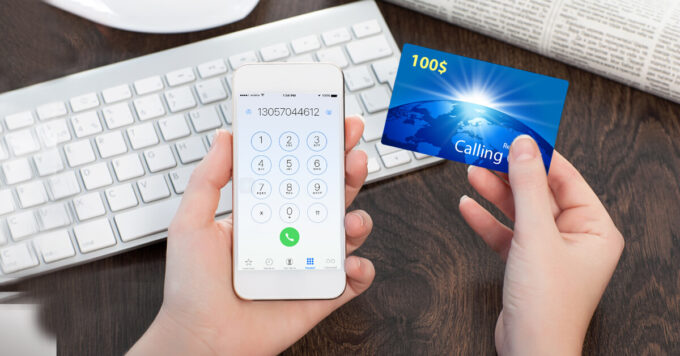Buying a phone card can be surprisingly tricky, although simple to operate, there is still a lot of technology under the hood and clever marketing to sift through before you can find the right phone card for your use case.
In this article, I’ll outline a few simple questions to ask the phone card service provider that will help you avoid 90% off any potential problems that may occur when buying your next phone card.
How long does this card last?

Source: revesoft.com
Virtually all phone cards come with an expiration date, this is typically due to legal or accounting reasons.
These will typically range from 3 months to 12 months after which you will either need to recharge the card or the card goes dead.
Some other things you would want to know is:
What happens if you phone card expires?
Most phone card companies will delete your credit and deactivate your phone card which means you will need to buy a new one.
Some companies will allow you to reactivate your phone card by recharging and paying a small reactivation fee. By the way reactivation really just comes down to clicking a button on their end so it is pure profit for those companies.
And even fewer phone card companies will allow you to reactivate your phone card via top up and without charging you an additional fee.
Before purchasing your next phone card, you should ask the retailer:
- When does this card expire?
- What happens to my credit if the phone card expires?
- Can it be reactivated and are there any fees?
Which is the best card for your situation?

Source: unsplash.com
Notice here that I did not ask “what is the “cheapest” phone card for X country.
What you want is the best and the best doesn’t necessarily mean the cheapest.
We consumers tend to bucket things together to ensure we get the best product for the best price but this can be bad news when purchasing certain items, for example if you are buying gas then going for the cheapest price is ok, because there are only a handful of different variants and they are too different from one another so price is an ok buying criteria and gas from one station is the same as the gas at another station.
But buying phone cards based solely on the cheapest price will get you into trouble because each phone card can be very different from card to card and from provider to provider.
“First thing is that you want to get a stable connection with the person you are talking to, that is the first priority, it doesn’t matter how cheap your per minute rate it, if your line keeps dropping out or you can’t even connect to the persons phone line then it doesn’t matter.” Angus B, Phonecardchoice.com.au.
My advice is to select a card that specializes in a specific country. This of course doesn’t guarantee that you won’t experience any issues but it should reduce them.
Second is you want to make sure you get the smallest billing increment.
A billing increment is how often your phone card is charged. While phone cards will display their per minute rate, this doesn’t mean you will be billing per minute.
For example, if you have a phone card with a 5 minute billing increment but is charging you 1 cent per minute then you are in fact paying 5 cents once every 5 minutes. The reason why this is important is that unless you are ending your call on the 4:59 minute mark then you are not paying 5 cents per minute, you are paying more – if your call only lasts one minute you are still charged that full 5 minutes.
My advice here is to try and fine a phone card that comes with 1 minute billing increments or at most 3 minutes.
This will ensure you get the most out of your phone card.
What happens if I have a technical fault?

Source: unsplash.com
If you are planning on using a phone card for an extended period then at some point you are going to run into some form of tech issue, whether that be a dropped line, noisy line or perhaps not being able to connect at all.
These can pop up seemingly out of the blue so it is important that you are able to get this resolved as quickly as possible.
If you are with a phone card provider that hasn’t invested a lot into their carrier lines in both quality or quantity then it may take a few days or even a week or more to resolve these types of issues.
So, while you will likely run into issues even with higher end phone card companies the value becomes clear in how fast that technical issues is resolved.
My advice is to ask the retailer how long it takes to resolve any technical issues like noisy lines, dropped calls, crosslines or connect issues.
The good phone card service providers should be able to resolve the issue that same day the best within a few hours even less.
By asking that simple question you will be insuring yourself against a lot of frustration and stress.
Conclusion
Asking the right questions is key to ensuring that you come away with the right product for your specific use case and in this article, I covered the 3 main ones:
- How long does this card last?
- Which is the best card for your situation?
- What happens if I have a technical fault?
This means you will know how long you’ve got to use your card including any special fees should your card actually expire, how to find a phone card specific to where you are calling to in order to get the most reliable carrier lines and finally if you do run into tech issues how long does it take to resolve any issues.







